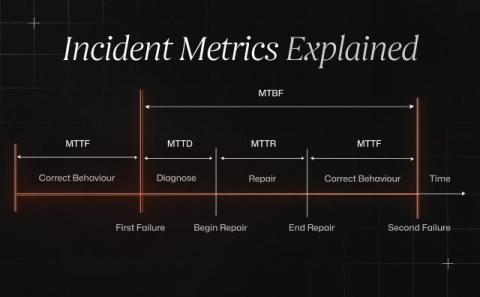MTBF, MTTR, MTTF, MTTA: Incident Metrics Explained
When it comes to managing incidents and ensuring operational efficiency, understanding key metrics is crucial. Among the most important are MTBF (Mean Time Between Failures), MTTR (Mean Time To Repair), MTTF (Mean Time To Failure), and MTTA (Mean Time To Acknowledge). In this blog, we'll explore these metrics along with some best practices and practical applications.











